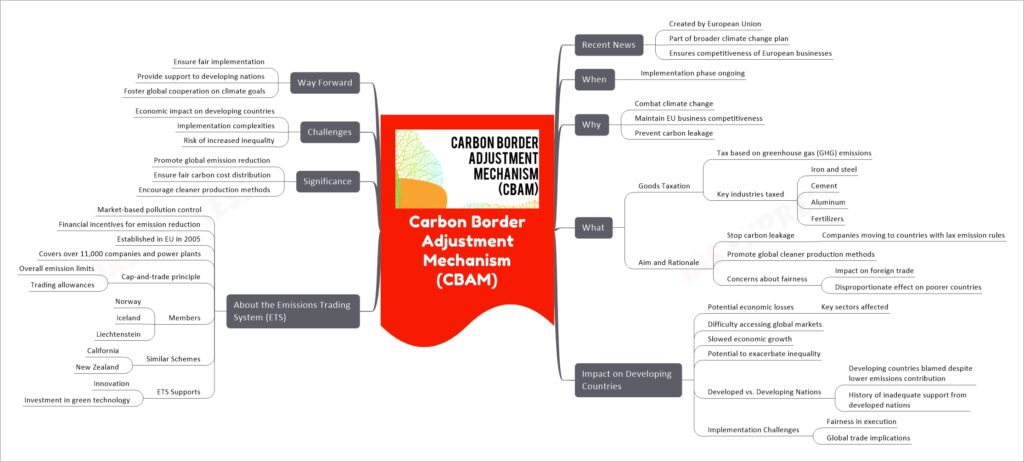Carbon Border Adjustment Mechanism (CBAM)

The Carbon Border Adjustment Mechanism (CBAM), initiated by the European Union, aims to combat climate change and maintain the competitiveness of European businesses by taxing goods based on their greenhouse gas emissions. Key industries affected include iron and steel, cement, aluminum, and fertilizers. CBAM’s primary goal is to prevent carbon leakage by ensuring that companies outside the EU, who use the Emissions Trading System (ETS), face similar carbon costs as EU companies. This promotes global cleaner production methods. However, concerns arise about the fairness and impact on global trade, particularly on developing countries, which may face significant economic losses and increased inequality. The ETS, established in 2005, is a market-based pollution control system that incentivizes emission reduction through a cap-and-trade principle, supporting innovation and green technology investments. Ensuring fair implementation and providing support to developing nations are crucial for CBAM’s success.
If you like this post, please share your feedback in the comments section below so that we will upload more posts like this.

